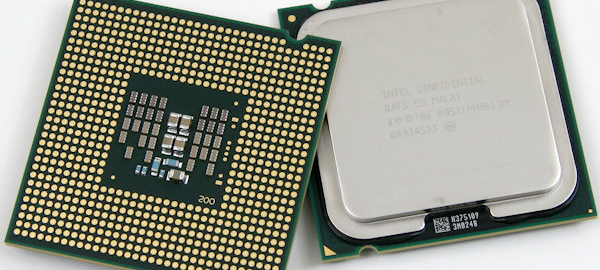Update 06/2018: this article is no longer relevant, since cheap Intel motherboards have been available for good few months now.
Anyone looking to buy or upgrade their CPU in the nearest future will face an interesting choice.

Early in 2017, Intel released 7th generation of CPUs, such as Core i5 7600k that I’m using. They use Kaby Lake architecture and are usually slotted in motherboards with 200-series chipset, such as Z270.
By the way, “k” at the end of the CPU name indicates it can be overclocked by multiplier, which is how CPUs are usually overclocked. Only motherboards with “Z” in their chipset name can overclock Intel CPUs by multiplier. You can read more about it here.
And just recently Intel released 8th generation of CPUs, such as i5 8600k. They use Coffee Lake architecture and require a motherboard with the new 300-series chipset, such as Z370.
Normally, you’d want to go with the newer generation without a second thought, but the problem is that Coffee Lake CPUs got a ton of hype, which led to stock shortage and significant price increases in both Coffee Lake CPUs and 300-series motherboards.
The hype is well deserved. Tom’s Hardware confirms Intel’s claims to i7 8700k being “company’s best gaming processor ever”. Coffee Lake is the first generation in years to give consumer-grade Intel CPUs more cores, though otherwise it’s not very different from Kaby Lake.
For example, the i3 7350k had 2 cores, while i3 8350k has 4 cores. These two CPUs are supposed to have the same price, but for the moment newer CPU is nearly twice as expensive. Eventually, the price will drop, but that can take months.
Both Kaby Lake and Coffee Lake use the same LGA1151 socket, but Intel decided to be a dick, and made Coffee Lake CPUs incompatible with 200-series chipsets.
So it doesn’t make sense to get Z270 motherboard with something like i3 7350k, and hope to upgrade it to Coffee Lake later, or whatever comes after Coffee Lake. If you get a Kaby Lake CPU right now, you will have to replace the motherboard later as well.
So if you’re looking to buy or upgrade your CPU, it might make sense to wait a few months and wait until Coffee Lake CPU price drops. This would be more cost efficient.
Let’s compare a few of the noteworthy CPUs:
- i3 7350k: 2 cores, 4 threads (Hyper Threading)
- i5 7600k: 4 cores, 4 threads, + Intel Turbo Boost 2.0
- i3 8350k: 4 cores, 4 threads
All of these CPUs can run the same amount of threads, though obviously having a whole core for each thread is more effective.
Intel Turbo Boost lets the CPU automatically increase multiplier, as long as it can avoid overheating. It’s basically an automatic overclock. However, if you’re getting a “k” version, obviously you’re going to overclock manually, so you don’t really care about Turbo Boost.
The point that I’ve been leading up to: when prices drop to where they should be, i3 8350k will be a good deal cheaper than i5 7600k, while offering basically the same performance.
It will also let you use a Z370 motherboard, which is less likely to become the dead end that Z270 became, and there’s a good chance that you will be able to simply swap the CPU when time comes, saving some money on replacing the motherboard as well.
Four cores should be enough to run vast majority of modern and upcoming games at good settings. Even if more new games will be optimized for multi-threading, the Intel’s excellent per-core performance and overclock should carry you quite far.
If you’re anxious to upgrade right now, but don’t want to overpay for Coffee Lake – there is another option.

You can get a used Z270 motherboard + i5 7600k or even i7 7700k CPU.
Modern electronic components are usually quite durable, and since they were released only this year, they shouldn’t have been subjected to too much wear and tear.
Meanwhile, the Coffee Lake pretty much made them obsolete, which should significantly reduce their price point, even past the price reduction that used components usually get.
As always when getting used parts, there is a considerable risk of being tricked into buying broken or otherwise inoperable hardware. Never get used hardware unless the seller can offer a full suit of documents, including warranty, and only if you get to personally test that hardware.
